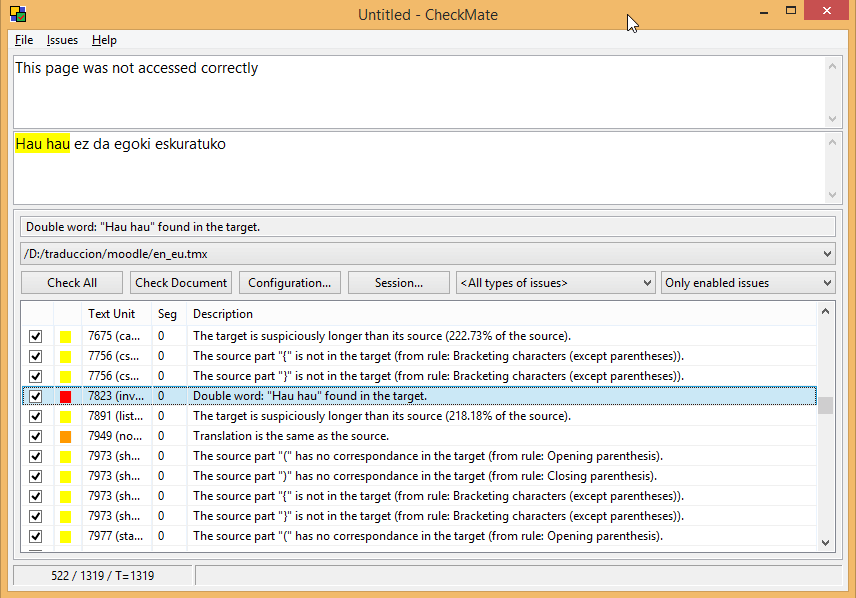Hi David,
I have a recurring nightmare about placeholders in the original English language strings that I had inadvertingly mis-translated; either by ignorance when I began translating in AMOS or by genuine typing errors as a mere human being.
Is there a regex instruction that will allow me/anybody to check that all strings for one branch of my/any language pack have indeed all original English language placeholders properly respected in the translation ?
Thanks in advance for your help.
